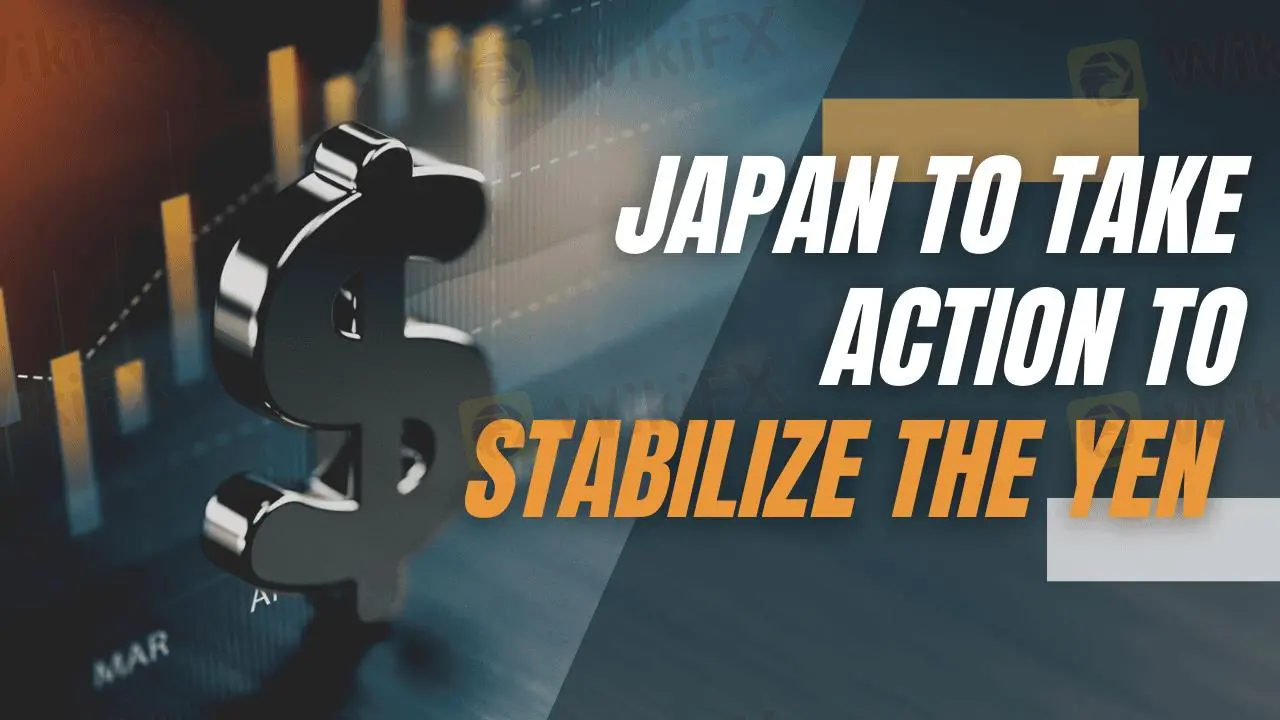简体中文
繁體中文
English
Pусский
日本語
ภาษาไทย
Tiếng Việt
Bahasa Indonesia
Español
हिन्दी
Filippiiniläinen
Français
Deutsch
Português
Türkçe
한국어
العربية
Japan to Take Action to Stabilize the Yen
Abstract:Japan faces yen depreciation due to interest rate gaps; officials plan measures to stabilize forex market volatility.

Since early 2022, the Japanese yen has depreciated by over 20% against the US dollar, primarily due to the interest rate differential between Japan and the US. Despite multiple interventions by the Japanese government in September and October 2022, as well as in April and May 2024, the yen has continued to weaken. On July 3, 2024, the USD/JPY exchange rate hit a 38-year low, with 1 USD equaling 161.96 JPY.
The persistent easing of monetary policy by the Bank of Japan (BOJ), in contrast to rate hikes by major central banks such as the Federal Reserve and the European Central Bank, has widened the interest rate gap between Japan, the US, and Europe. This divergence has reduced the yen‘s appeal to investors, leading to sustained selling pressure in the forex market. For Japan’s energy-dependent economy, the yens depreciation is particularly concerning, as it further inflates the cost of importing oil, natural gas, and other raw materials, exacerbating economic pressures on households and businesses.

To address the yen‘s volatility, Japanese officials have hinted at potential measures to stabilize the exchange rate. In a routine press conference, when asked about the yen’s continued weakness, Japanese Finance Minister Shunichi Kato stated, “Our stance has not changed.”
Last Friday, Kato noted the recent one-sided and sharp movements in the foreign exchange (FX) market. He further emphasized that appropriate measures would be taken to prevent excessive forex volatility.
Disclaimer:
The views in this article only represent the author's personal views, and do not constitute investment advice on this platform. This platform does not guarantee the accuracy, completeness and timeliness of the information in the article, and will not be liable for any loss caused by the use of or reliance on the information in the article.
Read more

Malaysian Finfluencers Could Face RM10 Million Fine or 10 Years in Prison!
A new regulatory measure by the Securities Commission Malaysia (SC) is set to change the country’s online trading and financial influencer landscape. Starting 1 November 2025, any trader or influencer caught promoting an unlicensed broker could face a fine of up to RM10 million, a prison sentence of up to 10 years, or both.

Juno Markets: A Closer Look at Its Licenses
When selecting a broker, understanding its regulatory standing is an important part of assessing overall reliability. For traders seeking to protect their capital, ensuring that a platform operates under recognised and stringent oversight can make all the difference. Keep reading to learn more about Juno Markets and its licenses.

Complaints Against Weltrade | Traders Can’t Get Their Money Back
Opening a trading account and watching your capital grow can feel exciting and full of promise until the moment you realise you cannot get your money back. That’s when the dream turns into a nightmare. Recent complaints submitted to WikiFX reveal an unsettling pattern seen at Weltrade where deposits vanish, withdrawals stall for days or even months, and support channels lead nowhere.

WikiFX Community Event Series, “Thailand Elites’ View”
WikiFX launched the “Thailand Elites’ View” event in its official community, featuring heavyweight guests from the Elites Club who shared their insights on the current state of Thailand’s forex market, compliance trends, and the building of investor confidence.
WikiFX Broker
Latest News
What Is Indices in Forex? A Beginner’s Guide to Trading Forex Indices
FBI Issues Urgent Warning on Crypto Recovery Scams
Robinhood Moves Toward MENA Expansion with Dubai DFSA License Application
How to Use Retracement in Trading
CySEC warns the public against 17 investment websites
Fake Trader Faces 20 Years & RM9 Million Fine for RM1.45 Mil Derivatives Scam
Complaints Against Weltrade | Traders Can’t Get Their Money Back
WikiFX Community Event Series, “Thailand Elites’ View”
Juno Markets: A Closer Look at Its Licenses
Germany's Industrial Core Is Collapsing Under The US Trade Deal And The Green Agenda
Currency Calculator


